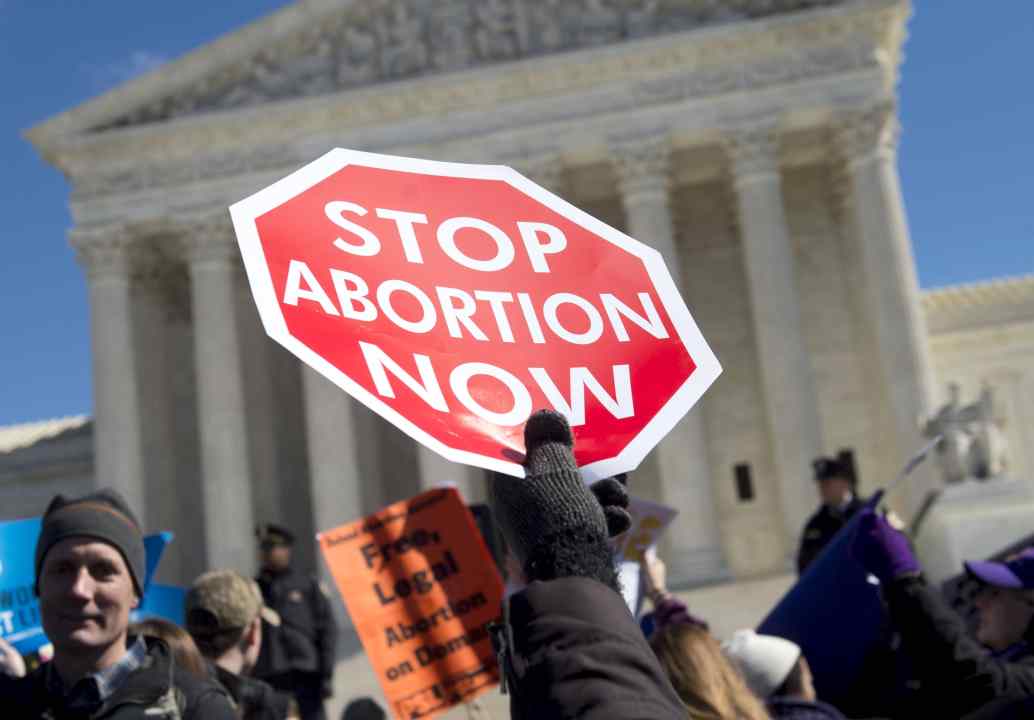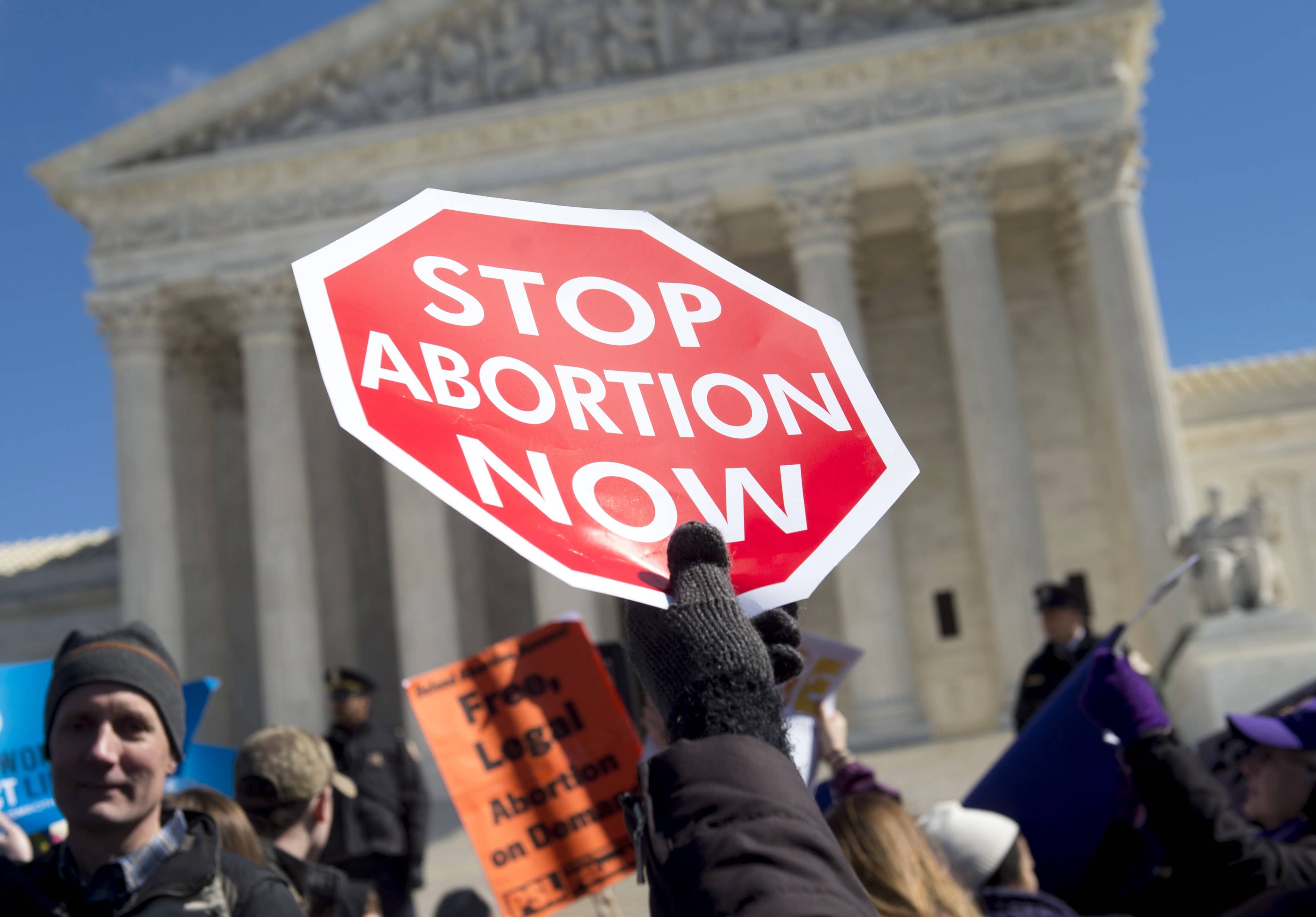Notice anything about the coverage of the new Texas abortion law in Britain? I mean, quite apart from the fact that we’re obsessing about it in a way that confirms that culturally, Britain is more or less an offshore US state (the US is another country, no?).
But on the actual issue, Texas has changed its abortion law to ban the procedure if there is ‘a detectable fetal heartbeat’ — in effect, after six weeks. The US Supreme Court has just upheld this in a very tight 5-4 vote. The justices are also due to hear an appeal against a 2018 Mississippi law that bans abortions after 15 weeks. South Carolina is moving the same way, passing its own ‘fetal heartbeat’ Bill in February. So we’re heading toward Roe vs Wade territory, a huge debate about ethics, the right to life and the right to choice.
But that’s what’s missing from the UK coverage: any idea of a debate. There has been consensus among the pundits and among the reporters that this is, as one editorial put it, a ‘cruel, vindictive and dangerous law.’ Any dissent, any cheerful reaction from anti-abortionists about how this law will save an unknown number of foetuses — i.e. pre-natal human beings — is strangely absent.
The consensus, the unchallenged consensus, is that this is Handmaid’s Tale territory, on par with what’s happening in Afghanistan under its exciting new regime. One headline called on the ‘Texas Tallibanistas’ to beware, freedom would win. The Guardian this morning reports with satisfaction that the UN has condemned the new law as ‘structural sex and gender-based discrimination at its worst’. Do people realise what’s happening in Afghanistan? Stoning adulterers isn’t quite on the cards in Texas.
The Texan law has been covered in the UK as if it was a self-evident catastrophe
Certainly, you may take the view that the new Texas law will increase illegal abortions and personally I take a dim view of the fact that there seems to be a bounty for snitches, which is always a terrible idea. There are disturbing reports of abortion providers in Texas squeezing in patients around the clock until the law kicks in at midnight tonight. But it seems like there are no qualifications in the UK media coverage and no suggestion that this is a complex moral problem. There has been no suggestion, in fact, that while the losers from the law may be women who can’t end unwanted pregnancies, the undoubted winners will be those foetuses who do get to be born.
You may think this is overly sentimental. I know several people who owe their very existence to the fact that Ireland had a ban on abortion until three years ago. They were unwanted — really unwanted — by their mothers but were born because there wasn’t an alternative at the time.
There is another part missing from this debate: the notion of democracy. If Texas authorities are passing this bill, might that reflect public opinion in Texas — and might that be very different to the UK? Surely this is an interesting point, worthy of journalistic exploration?
According to polling carried out in February by the University of Texas and the Texas Tribune, 43 per cent of people in the state believe that either abortion should never be permitted or only allowed in cases of rape, incest or where a woman’s life is in danger. Another 12 per cent think abortions should only be allowed in other cases when ‘the need for the abortion is clearly established’.
In February, around 30 per cent of Texan women thought the state should have stricter abortion laws, 18 per cent thought the law should stay the same, and 37 per cent wanted less strict laws (the rest didn’t know). But you’d struggle to find any UK report featuring the opinion of any Texan woman who wanted this law to go ahead — or who regarded this as progress, reflecting improved scientific understanding about early-stage pregnancy.
It’s perhaps hard for Brits to relate to because, according to YouGov, only 9 per cent of people here believe that it is currently too easy to get an abortion. Just 2 per cent think abortion should not be legal at all (32 per cent don’t have a view). But surely this makes it all the more important for coverage of the US to explain just how differently this topic is seen there. It’s hard to understand modern America without understanding the strength of public opinion driving so many states to tighten restrictions. Must the UK debate always be slanted against such people? Might not there be the possibility that the Texas situation is democratically equitable, in the direction of pre-natal human rights?
The Texan law has been covered in the UK as if it was a self-evident catastrophe. There has been a generic sense of impending doom that the Supreme Court hadn’t seen off the Texas law, and could do the same in Mississippi, which would in turn open the way for each state to decide its own abortion laws. When listening to one programme about the Texas law, I was interested to see if a recording of a foetal heartbeat would be played — the development on which the law is premised — which is much faster than ours, as a way to illustrate the item. Or a debate about how the science has evolved over the years. But it never came.
The BBC’s From Our Own Correspondent, presented by the generally excellent Kate Adie, often covers the abortion issue abroad, treating every liberalisation as a good thing, every restriction as a catastrophe, and without exception, treating pro-choicers as the only sane individuals worth quoting — bringing on a snippet from pro-lifers by way of form, but never actually giving the other side of the argument.
Compare and contrast the coverage of this restrictive law with the striking news that one in four pregnancies now ends in abortion in England and Wales. There will be a great many people (myself included) who see this as a huge loss of human life, a genuine tragedy. One in four. Is there space in our national debate to ask if this is what David Steel had in mind with the 1967 Abortion Act? Is there room for someone to argue that we’re talking about human lives? It’s odd to have this view ignored completely. Yet we see gender-specific abortions referred to as foeticide. We also have an understandable and genuine sharing of grief when a famous person has a miscarriage. And do let’s remember, at the end of the first trimester, pregnant women here get shown pictures of their human-looking foetuses when in law you can abort those very foetuses for the next three months.
Anyway, back to the Texas coverage. It’s odd that there’s such little diversity of view in the organs we actually pay for, like newspapers. But in the BBC, with its public service mandate, such a bias is wrong and deserves to be challenged.








Comments